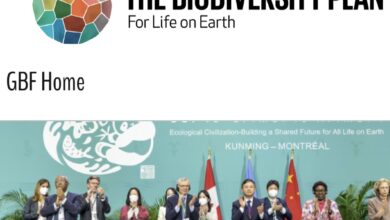COP30: President Lula Launches Belém Declaration as 43 Countries Commit to Tackle Hunger, Poverty

By Samuel Ogunsona
Brazil’s President Lula has launched the Belém Declaration on Hunger, Poverty and People-Centred Climate Action.
This was seen as a landmark initiative aimed at putting social justice at the heart of climate plans during the COP30 leadership talk on Friday.
The declaration has been signed by 43 countries and the European Union, committing to take concrete actions to address the intertwined crises of hunger and climate change.
The signatories have pledged to include social protection measures within climate plans, support small-scale farmers, ensure a just transition for those living in forested areas, and deliver on existing finance commitments.
According to the declaration, climate change could push up to 80 million people into poverty by 2050, with countries with high rates of hunger being most at risk.
Raj Patel, Professor in the Lyndon B Johnson School of Public Affairs at the University of Texas and member of IPES-Food expert panel, welcomed the declaration, saying, “Brazil’s recent history proves that backing family farmers and prioritizing social policies makes hunger fall. It’s good to see this politics in Belem’s declaration, which signals a welcome shift—from shiny climate pledges to real-world impact on people. It also deserves credit for calling out unjust debt, one of the biggest drivers of climate destruction.
“But the real test is this: will this declaration’s signatories have the political spine to stand up to big banks and big meat? Because without challenging the industries driving climate destruction, it’s just more talk.”
Elizabeth Nsimadala, President of East African Farmers Federation, which represents 25 million smallholders across the region, emphasized the need for action, saying, “The declaration shines a light on the critical role that family farmers play in tackling the hunger and climate crisis. However, warm words are not enough – this declaration needs to translate into more direct access to climate finance for family farmers and their organisations so that we can continue to feed our communities – and the world – in a changing climate. Small-scale farms produce half of the world’s food calories but receive just 0.36% of the funds we need to adapt.”
Elisabetta Recine, IPES-Food panel expert and president of the Brazilian National Food and Nutrition Security Council (Consea), highlighted Brazil’s success in reducing hunger, saying, “In just two years, Brazil has lifted tens of millions from the ravage of hunger through concerted political action that puts family farmers, Indigenous and traditional communities, and access to healthy local food at the centre of decision-making. This declaration is about taking Brazil’s hunger-beating formula global.
“The way forward is clear – tackling hunger, inequality, and climate change must go hand in hand. That’s a powerful message to open these international climate negotiations in Belém.”




